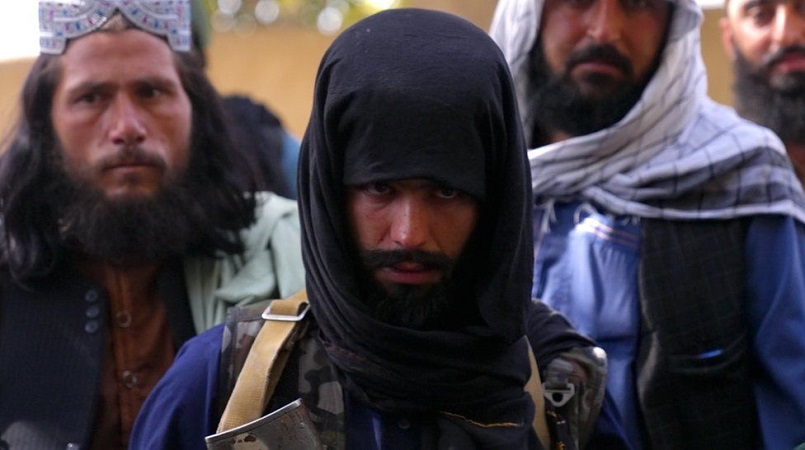
The Taliban fighters we meet are stationed just 30 minutes from one of Afghanistan's largest cities, Mazar-i-Sharif.
The "ghanimat" or spoils of war they're showing off include a Humvee, two pick-up vans and a host of powerful machine guns. Ainuddin, a stony-faced former madrassa (religious school) student who's now a local military commander, stands at the centre of a heavily-armed crowd.
The insurgents have been capturing new territory on what seems like a daily basis as international troops have all but withdrawn. Caught in the middle is a terrified population.
Tens of thousands of ordinary Afghans have had to flee their homes - hundreds have been killed or injured in recent weeks.
I ask Ainuddin how he can justify the violence, given the pain it's inflicting on the people he claims to be fighting on behalf of?
"It's fighting, so people are dying," he replies coolly, adding that the group is trying its best "not to harm civilians".
I point out that the Taliban are the ones who have started the fighting.
"No," he retorts. "We had a government and it was overthrown. They [the Americans] started the fighting."
Ainuddin and the rest of the Taliban feel momentum is with them, and that they are on the cusp of returning to dominance after being toppled by the US-led invasion in 2001.
"They are not giving up Western culture… so we have to kill them," he says of the "puppet government" in Kabul.
Shortly after we finish speaking we hear the sound of helicopters above us. The Humvee and the Taliban fighters quickly disperse. It's a reminder of the continuing threat the Afghan air force poses to the insurgents, and that the battle is still far from over.
